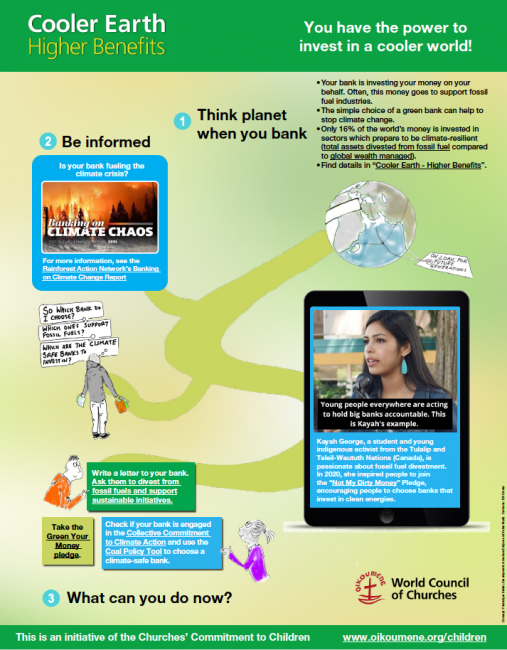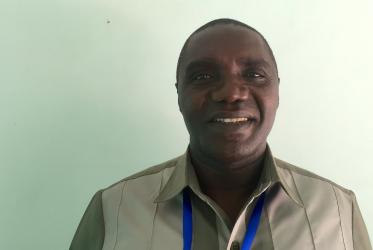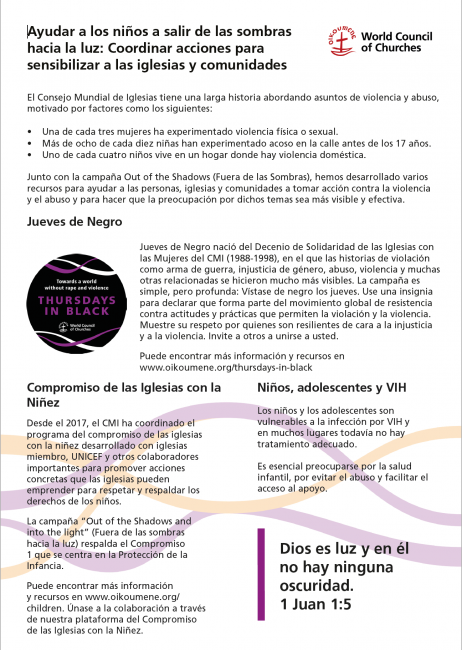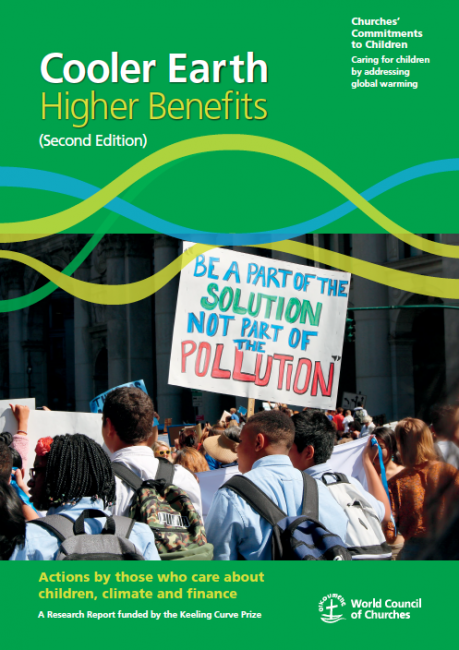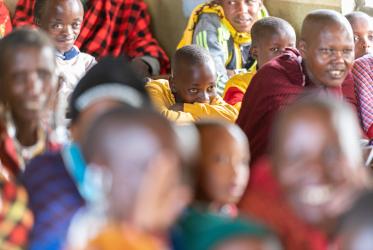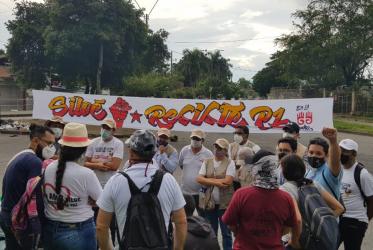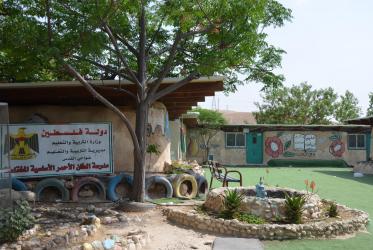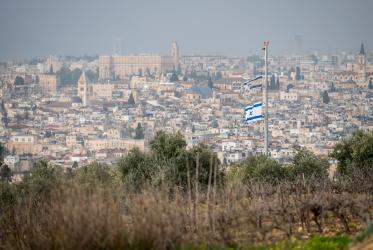Displaying 161 - 180 of 220
Actions by those who care about children, climate and finance.
16 July 2021
Helping Children Out of the Shadows and Into the Light: Poster
Church Resources For Ending Sexual Violence Against Children
15 July 2021
Thursdays in Black sheet: Helping Children Out of the Shadows and into the Light
Linking actions to raise awareness in churches and communities
15 July 2021
Cooler Earth – Higher Benefits Second Edition
Actions by those who care about children, climate and finance
02 July 2021
Bedouins of Pope’s Hill fight eviction
30 March 2021
East Jerusalem: Denied citizenship and the vote
30 March 2021
